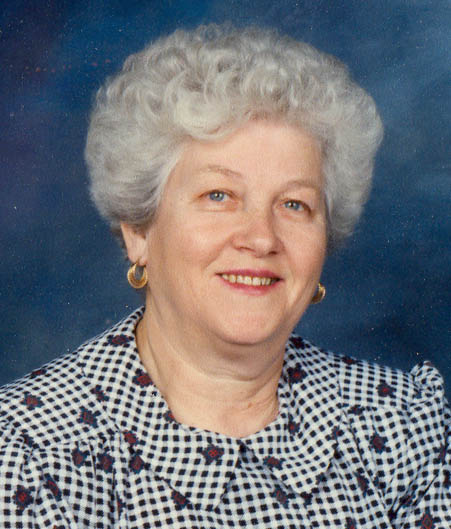
“Justice, justice shall you pursue,” Jewish tradition tells us. Judy Meisel, a Holocaust survivor who lived by example, was a true seeker of justice. As an important participant of the Jewish Federation of Greater Santa Barbara’s Portraits of Survival Program, she selflessly devoted countless hours speaking to groups of students and community members about the lessons of the Holocaust, reminding us of the consequences of unchecked hate in society — and that we must all use our voices to speak up for others. Many summers, we traveled together to local Jewish summer camps and spoke to hundreds of children. Judy freely shared the horrors she experienced in the Holocaust when 146 members of her Lithuanian family did not survive.
But she also spoke of the incredible kindness she found from strangers, especially those in Denmark, who helped her heal after such a dark and terrible time of loss. And when she came to America during the civil rights movement and witnessed the racial inequality in this country firsthand, she felt the call to work for justice, helping to organize the March on Washington in 1963 and working in her own neighborhood near Philadelphia. Judy often spoke of the impact on her life of meeting Dr. Martin Luther King during this time.
My family enjoyed Sabbath dinners at Judy’s table. When my own daughters had their Bat Mitzvah celebrations at the Isla Vista Minyan, where Judy also worshipped, she was sure to bake their favorite cookies for their special day.
I think she would be pleased that my youngest, Talya, is now working for the Anti-Defamation League, an organization to which Judy felt so devoted.
Rest with God among the angels, dear Judy, for you will be among Heaven’s favorites. May your memory forever be a blessing. —Ruth Dubin Steinberg
Part of Judy Meisel’s lifelong mission was to bear witness to the past — testimony more impactful than a historian’s recounting. She provided audiences of diverse backgrounds a tangible connection to those events and knew her harrowing tale of Nazi atrocities was more bearable to hear because she was there to tell it.
The other part of her mission was grounded in the present. If she could emerge from her experience without hate in her heart, she mused, then anyone can learn to live without hate.
Upon arriving in Denmark and revealing her Jewish identity, a Danish official commented that she must hate Germans. Her surprising reply: “I hate hate.” That sentiment drew her to the civil rights movement, it fused her to the Anti-Defamation League’s (ADL) mission “to secure justice and fair treatment to all,” and it became the exclamation mark in her talks to teens and college students at the invitation of ADL and others.
Judy’s message transcended religion and politics. As our late U.S. Representative Walter Capps noted in the 2000 documentary Tak for Alt, Judy experienced the worst of humanity and yet remained a person of great hope. In conveying both, she was “a visible manifestation of the human spirit.”
Judy had a profound impact on many area students — children and adults — and was a longtime boardmember of ADL’s Santa Barbara/Tri-Counties Region.
She was also a loving aunt, who married my uncle, Fred Meisel. Her cookies were as legendary within the family as they were beyond, and they regularly occupied half of my parents’ freezer (and who knows how many others) lest some be needed at a moment’s notice to comfort someone — and they often were. —Dan Meisel
Several generations of Santa Barbara Jews owe their knowledge and love of Judaism to Judy Meisel, who served for many years as the Director of Beit HaYeladim (“House of the Children”), the preschool of Congregation B’nai B’rith.
Born and raised in a traditional Jewish home in Eastern Europe, Judy had a gift for connecting to people from all over the world, of all ages. She knew how to connect to little Jewish children growing up in Santa Barbara, who knew nothing of the lost Jewish world of Eastern Europe, but who knew that they loved Judy and that she loved them. She baked challah with them, told them stories, created a learning environment rich in culture and community, and invited them to her home, where, if they were very good, she would let them bounce on her bed.
And it was not only little children that experienced Judy’s educational embrace. Judy saw it as her mission to share with everyone the deep spiritual power of a traditional Friday-night dinner. She regularly hosted dinners for 15 or 18 people on Friday night, beginning with blessings over candles, wine, and challah, continuing with matzah ball soup, “mock” chopped liver, tzimmes, Israeli couscous, kosher chicken, mouth-watering desserts, and ending with the singing of birkat hamazon, the traditional blessing after the meal. Her guests included Jews and non-Jews, educators, philanthropists, faith leaders from different communities, and newcomers to Santa Barbara.
When Hannukah came, Judy turned her attention to the Jewish college students of Hillel in Isla Vista who were away from home for the first time and would cook up hundreds of homemade potato latkes — to ensure that those young people would not lose their connection to their past. —Rabbi Stephen Cohen
Ruth Dubin Steinberg directs the Jewish Family Service and Portraits of Survival Holocaust Programs for the Jewish Federation of Greater Santa Barbara; Dan Meisel is regional director of ADL Santa Barbara/Tri-Counties, and Rabbi Stephen Cohen leads Congregation B’nai B’rith.
To honor Judy Meisel’s life, a virtual event sponsored by the Jewish Federation of Greater Santa Barbara will discuss the film “Tak for Alt’ with filmmaker Laura Bialis to coincide with International Holocaust Remembrance Day on Wednesday, January 27,at 5 p.m. For information, click here. Judy Meisel’s full story appears in the Jewish Federation’s Portraits of Survival Permanent Exhibit here.
